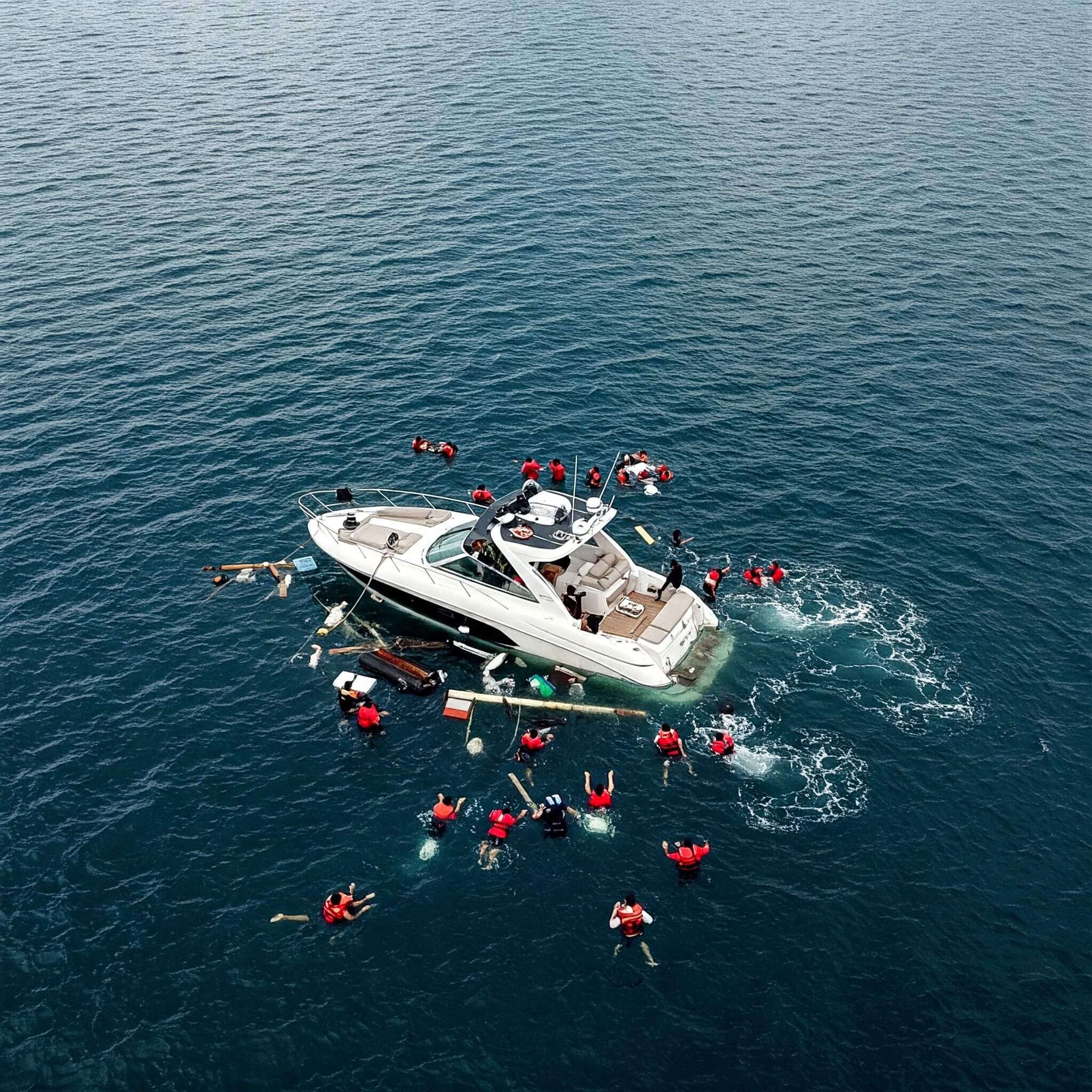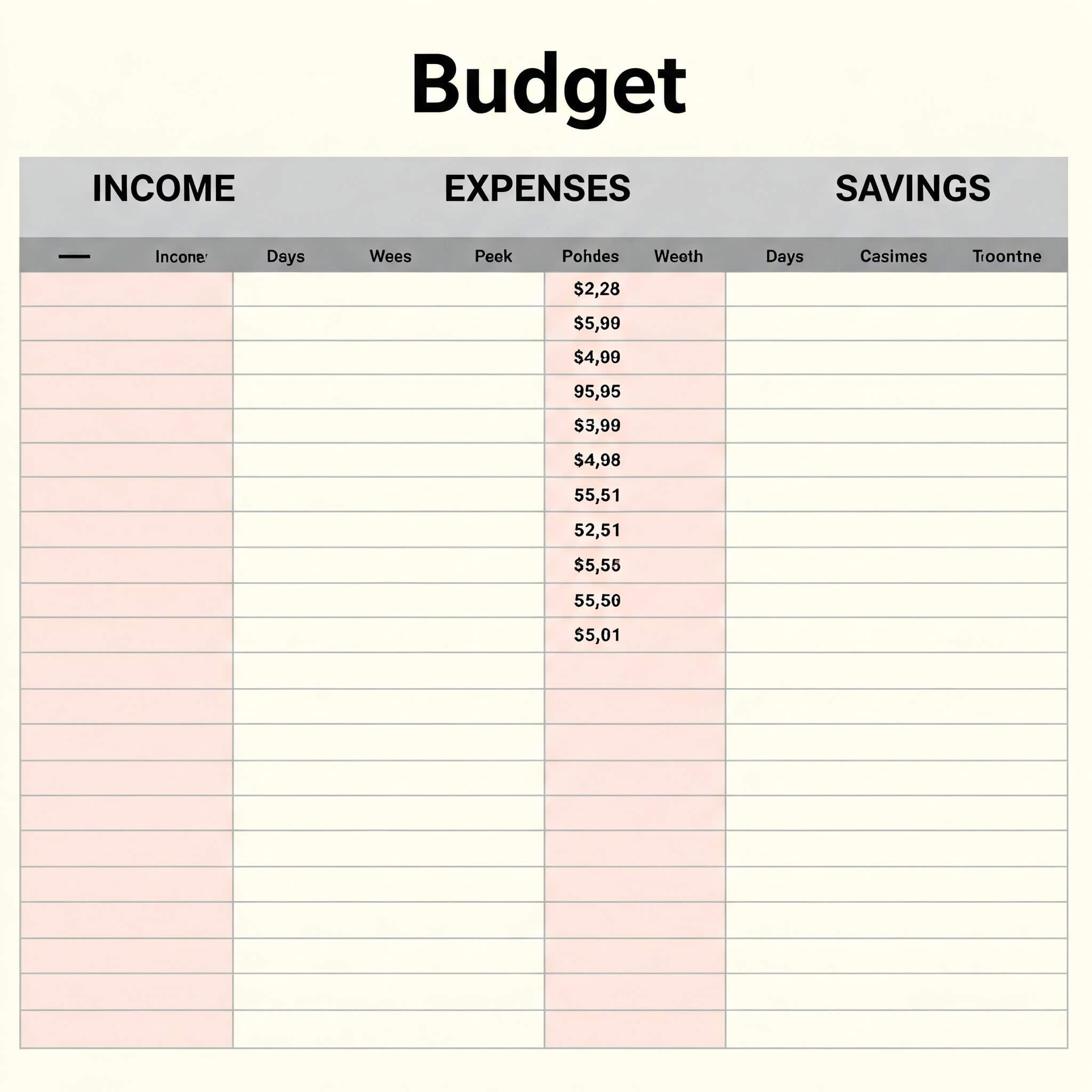Boating is that kind of activity that can turn any day around. The lapping of the water against the hull, the sun on your skin, the rush of slicing through waves—it's difficult to beat. Whether you're fishing, entertaining with friends, or simply lounging on a serene lake, being on the water creates a feeling of tranquility and exhilaration at the same time. But despite how much we enjoy it, boating is not risk-free. Things can go wrong, and when they do, If you are involved in a boating accident, what is the first thing you must do? they can ruin a wonderful day into a nightmarish experience. That's when you should know: in the event that you are involved in a boating accident, what do you need to do first?
It's a question that might save lives, shield you legally, and keep you calm in the midst of chaos. Boating accidents are not something we prefer to contemplate, but being prepared can be the difference between life and death. In this article, we're going to do a long, deep dive into all you need to know about boat accidents. We'll discuss why they occur, why they're so dangerous, and—most importantly—that one all-important first step you simply must take if you are involved in a boating accident, what is the first thing you must do whatever the water has in store for you. Let's get underway!
Why Boating Accidents Occur More Than You Know
Boating can appear to be a lighthearted pastime, but the fact remains, there are more boating accidents than most people imagine. The U.S. Coast Guard monitors them, and from their reports, thousands of boating accidents annually nationwide are evident. These accidents, capsizing, and collisions cause hundreds of injuries and, unfortunately, fatalities too. So,if you are involved in a boating accident, what is the first thing you must do? Before we tell you that, let's break down why these accidents continue to happen.
More often than not, it is because of human error. Folks get complacent—they speed through congested waters, drink and drive boats, or just don't notice what's going on around them. Weather also has a lot to do with it. A sunny day can turn stormy in minutes, catching boaters off guard with high winds and rough waves. Then there’s equipment failure—maybe your steering jams, or your motor dies at the worst possible time. Add in busy waterways, like lakes packed with weekend warriors, and you’ve got a recipe for trouble.
Imagine this: you're out on a river, taking in the view, when another boat comes speeding around a corner and bumps into yours. Or perhaps you bump into something underwater—a boulder or a log—and your boat begins to leak quickly. These accidents occur in an instant, leaving you dazed and flailing. That's why it's so critical to know whether you are part of a boating accident, what is the first thing you need to do?. It's your storm anchor—literally and metaphorically.
if you are involved in a boating accident, what is the first thing you must do?
Okay, let's get down to brass tacks. if you are involved in a boating accident, what is the first thing you must do? The answer is simple but absolutely crucial: make sure everyone is safe first. That means checking on yourself, your passengers, and anyone else that was in the accident before you do anything. Are you safe? Is anybody injured or in the water? Your number-one priority is keeping people safe.
Why does it come first? Because out on the water, danger does not wait. A person who is injured, unconscious, or in trouble keeping their head above water needs assistance immediately—not in five minutes. You cannot take the time to fiddle around with other jobs such as calling for assistance or checking your boat if a human life is at stake. Therefore, if you are involved in a boating accident, what is the first thing you must do? You stop, evaluate, and take safety first over everything.
Let’s paint a picture. Say your boat collides with another vessel. The impact jolts everyone onboard. Someone might be thrown into the water, or maybe a passenger hits their head. You’ve got to act fast—check for injuries, make sure no one’s drowning, and get everyone secure. if you are involved in a boating accident, what is the first thing you must do . Safety isn’t just a suggestion; it’s the foundation of surviving a boating accident.
Dissecting the Safety First Rule
Alright, so now we know if you are involved in a boating accident, what is the first thing you must do? is get everyone to safety. But, in the actual moment, how does that translate? Let's dissect it into simple, manageable steps so that you have an idea of precisely what to do in case the worst happens.
First thing first: don't panic. It's simpler said than done, but panic never helps. Take a deep breath and assess yourself—are you injured? Can you move and think? if you are involved in a boating accident, what is the first thing you must do Shout, "Is everyone okay?" Check for blatant signs of distress—bleeding, unconsciousness, or missing from the boat.". If anyone’s in the water, grab a life ring, a rope, or anything that floats and toss it to them.
If you’re able, pull them back onboard.
Second, life jackets. They're your best buddy in a wreck. If individuals weren't buckled in prior to the crash (and they ought to have been!), buckle them up now. Even if an individual's a great swimmer, shock, cold water, or injury can render them unable to swim. Get each and every individual a good-fitting life jacket—no exceptions.
If another boat is involved, don't ignore them. Are they taking on water? Do their passengers require assistance? Boating is a community, and helping out may save someone. After you've checked that everyone's out of immediate harm, you can proceed with calling for help or addressing the boats. But always remember:if you are involved in a boating accident, what is the first thing you must do ? Safety first, always.
Why Safety Precedes Everything Else in a Boat Accident
You might be thinking, "Why not radio for help right away?" or "Why not try to salvage my boat first?" Those are reasonable questions, and we'll get to those next steps in a minute. But here's the thing: if you are involved in a boating accident, what is the first thing you must do? isn't about equipment or things—it's about humans. Boats can be repaired or replaced. Human lives can't. Think about the stakes. If someone’s hurt and you’re busy fiddling with a radio, they could slip away before help arrives. if you are involved in a boating accident, what is the first thing you must do Water is unforgiving—there’s no “safe spot” to pull over like on a highway. You’re out there, exposed to waves, wind, and whatever else nature throws at you. Which is why if you are involved in a boating accident, what is the first thing you must do?
ought to be doing with keeping all people alive and intact.
It's also about timing. On land, emergency services might be just minutes away. On the water, it could take much longer—particularly if you are involved in a boating accident, what is the first thing you must do? You're the accident first responder on the water, whether you want to be or not. That's why safety must become your point of departure.
Real Stories That Show Why It Matters Let's make this real with some examples. Imagine a crowded lake on a summer weekend. Two boats are zipping around, showing off their speed. Suddenly, they collide—one spins out, the other flips. Passengers are flung into the water, some without life jackets. The drivers are in shock, unsure what to do. if you are involved in a boating accident, what is the first thing you must do?
In this case, it’s getting those people flotation devices and pulling them to safety before they drown.
Or imagine a family having a nice day on their pontoon boat. Suddenly, a storm brews, and a large wave capsizes them. The parents are frantically searching for their children in the turbulent water. if you are involved in a boating accident, what is the first thing you must do? It's ensuring everyone is accounted for and wearing life jackets—before things get worse.
These aren't hypotheticals—these are the types of accidents that occur each boating season. They make the first step not an option. if you are involved in a boating accident, what is the first thing you must do? is a lifeline when there are only seconds to spare.
What to Do Once Safety Has Been Ensured After you've dealt with the initial safety issues, then what?if you are involved in a boating accident, what is the first thing you must do? begins with safety, but the next step is equally important: summon help. Pick up your VHF radio, cell phone, or whatever device you have and call the Coast Guard, local authorities, or boats around you. Report where you are, what occurred, and whether anyone's hurt.
Be clear and concise—help needs to know how urgent it is.
Then go back to your boat. Is it still floating? Can you cork a leak or prevent it from sinking further? If it is safe, try to minimize the damage—possibly bail out water or tie off loose equipment. If another vessel was involved, swap information. Get their name, phone number, and insurance information, similar to a vehicle accident. Taking photos is a good idea also, if you can.
But see how everything else follows after safety. If you are in a boating accident, what is the first thing you have to do? sets the stage. Skip that step, and the rest can unravel before help even arrives.
Navigating the Legal Side of Boating Accidents
Boating accidents don't stop when the waves calm. There's a legal aspect to it, and it's helpful to know the basics. In most jurisdictions, you're mandated by law to report an accident if someone gets injured, killed, or if there is substantial damage—let's say, more than $2,000's worth. So, if you've had a boating accident, what's the first thing you need to do? kicks off with safety, but reporting comes close after.
When you speak to authorities or insurance agents, remain calm. Don't just say it's your fault—let the investigation determine that. Take notes on everything you can remember while it's still fresh: the time, the weather, what you observed. Take pictures of the scene if you can. These facts can save you if things get messy later.
And here's a tip: familiarize yourself with your local boating regulations before you go out. Some states have strict regulations regarding life jackets, speed limits, or alcohol consumption. Being on the right side of the law can save you a headache later.
How to Prepare Before You Even Leave the Dock
The best thing to do in the event of a boating accident is to not have one at all—or at least be prepared if it does occur. If you do get into a boating accident, what is the first thing you need to do? sounds a whole lot less intimidating if you've prepared in advance. Preparation isn't wishing for the best; it's preparing for the worst and being ready.
Begin with the basics. Every boat should have a life jacket for every person aboard—fitted and accessible. A first aid kit is indispensable, filled with bandages, antiseptic, and everything else you can think of to deal with small wounds. An operable radio or fully charged phone is your connection to help. Flares, a whistle, and a fire extinguisher are intelligent add-ons as well.
And then there's practice. Take a boating safety course-they're usually free or inexpensive and will school you on navigation, emergency response, and local regulations. Practice CPR and water rescue basics. You don't have to be an expert, but having a little knowledge helps.
Practice makes it real. Run drills with your crew—family members, friends, whoever you boat with. What if the boat tips over? What if someone goes overboard? The more you practice, the less you'll freeze up when it matters most. Preparation makes if you are in a boating accident, what is the first thing you need to do? become a muscle memory.
Common Mistakes to Avoid in a Boating Accident
Even with the best of intentions, individuals make mistakes in accidents. Let's discuss what not to do. First, don't neglect the safety inspection. If you get into a boating accident, what is the first thing you need to do? isn't calling your friend to boast about the crash—it's checking to see that everyone's alright. Not doing so can convert a fright into a tragedy.
Don't expect rescue to arrive quickly. On the water, rescue may be miles off, so don't sit idle and wait to do anything. Another error? Not wearing life jackets from the beginning. Waiting until the accident to wear them may be too late.
And don't get careless with the cleanup. Not reporting an accident or providing a nebulous account to the authorities can get you into trouble. Steer clear of these traps, and you'll emerge stronger.
The Emotional Side of Boating Accidents
Boat accidents aren't only physical—one hits you in the emotions, too. The adrenaline, the fear, the guilt if you've hurt somebody—it's much to take. If you were in a boating accident, what do you have to do first? keeps your head in the game, but then after that, you may be rattled.
That’s normal. Talk to someone—a friend, a family member, even a professional if it’s heavy. Don’t bottle it up. Boating’s supposed to be fun, and one bad day doesn’t have to ruin it forever. Give yourself time to recover, and you’ll be back on the water with confidence.
Wrapping Up: Stay Safe, Stay Smart
Boating is fun to have, but it requires responsibility. Accidents serve as a reminder that the water expects respect. What do you need to do if you are involved in a boating accident? isn't merely a question—it's your ticket to surviving the unexpected. Take care of everyone first, and you've already won half the battle. So the next time you rev up the engine and hit the water, have fun every minute—but remember this. If you get into a boating accident, what is the first thing you need to do? Prioritize safety. It's easy, it's intelligent, and it may be the difference between a tale to tell and a day you'd prefer to forget.





